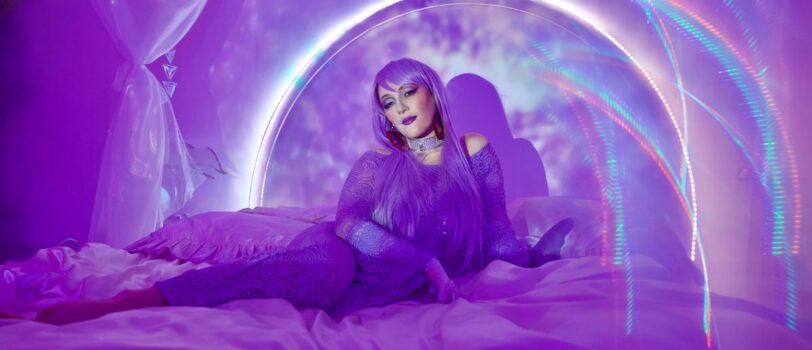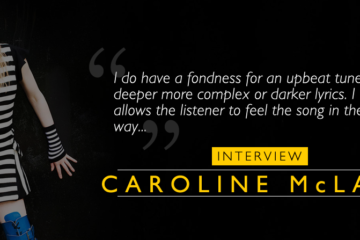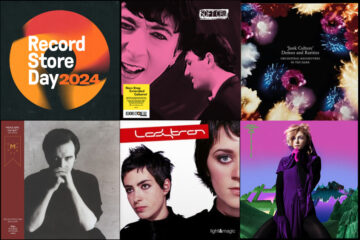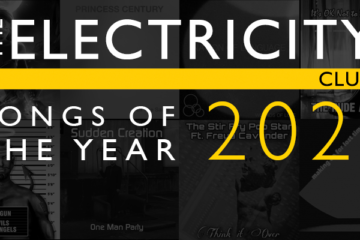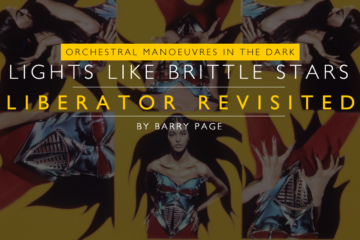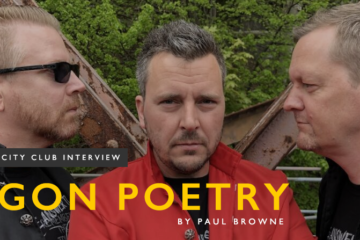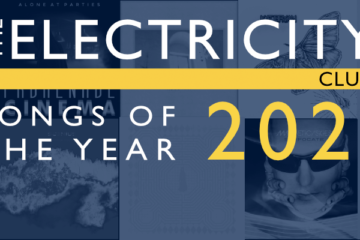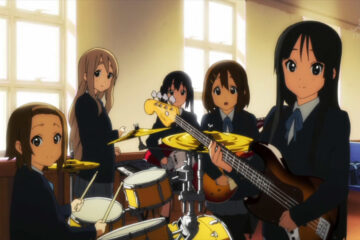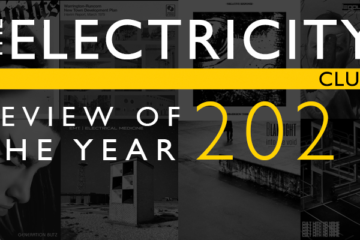“I can’t remember a time when music wasn’t central to my life…”
One of the albums that caught our ear in 2020 was the stunning Mercurial by Glasgow-based musician Elisabeth Elektra. From the anthemic ‘My Sisters’ through to the euphoric pop of ‘Inanna’, the album was one that the TEC review summed up as “magickal pop perfection.”
From her earlier incarnation as Zyna Hel, through to collaborations with the likes of Ben Power (Fuck Buttons, Blanck Mass) Andrew Liles (Nurse With Wound) and John Fryer (This Mortal Coil), Elektra has carefully laid the foundations for the crystal pop evident on Mercurial. Along the way, she’s also performed live with support for the mighty Human League and indie ‘super-group’ Minor Victories.
Elektra’s pure pop approach and her striking visual style provided a welcome respite from a Covid crisis-infused year. Her colourful outfits, which utilise a lot of pastel tones and shades, is part of a collaboration with American artist Marina Fini and offers a warm, engaging element to her music.
In her bio, Elektra has also suggested that she’s a “believer in the power of transformation via art”, something which is also present in her embracing of the magickal themes that are threaded across Mercurial’s compositions. It’s also a vital element of her live performances, which invoke a love for theatre and costume.
Intrigued by this approach, The Electricity Club sat down with the colourful pop artist to explore her world…
Obviously the current Cover-19 crisis has had a dramatic impact on musicians. How have you been dealing with it?
It’s definitely been hard for the whole music community, I think it has really highlighted the precarious nature of creative work and self-employment in the UK, and has also brought up many questions around why artists don’t earn more from streaming, and how much the arts are valued by the current UK government.
On a personal level I was really disappointed to have to cancel my tour, it was my first headline tour so felt like a big deal. But I’ve just immersed myself in creative work and have made sure I stay connected with friends and family as much as possible.
What were your earliest musical influences and how did you first get involved in writing music yourself?
My parents loved classical music, my mum has a great singing voice and was always singing around the house when I was growing up. I can’t remember a time when music wasn’t central to my life. It was just a logical step and a given that I would start writing my own music at some point.
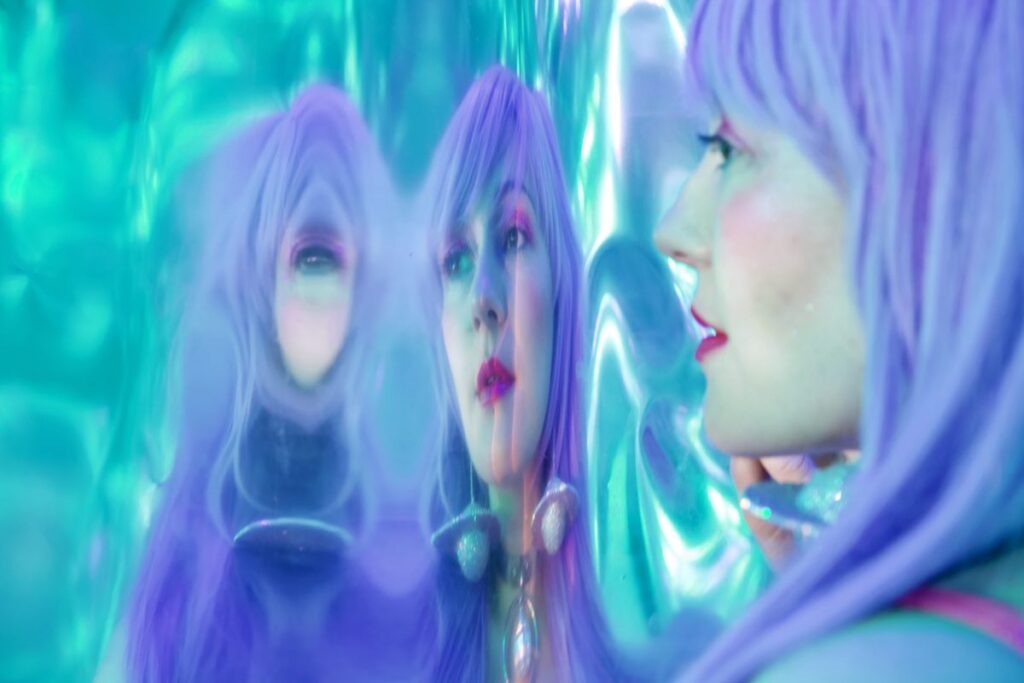
You had a very definite idea on how Mercurial should sound and what tracks would make the final cut. Was that a difficult process?
Definitely! At first I had 18 songs recorded and finished and no idea how to whittle them down. Over time though it just became obvious which songs belonged on the album. It’s a process I struggle with, I currently have 30 songs I’m finishing and working out which belong together isn’t straightforward.
There’s obviously nods to the occult and mythology evident on Mercurial and this seems to be an important element in your approach. Can you talk a little about where your interest stems from and what qualities it adds to your music?
I’ve always been interested in and practiced magick, since I was a child. I got my first pendulum, at 8 and first tarot at 10, I think I was born an occultist! Magick and my spiritual life are very much a part of who I am, so it makes sense those things would feed in to my music. At first I was covert about it but less so these days.
Similarly, the themes of liminality and the idea of rituals seems to be a big part of your music. Previously, you’ve talked about the idea that ritual should throw daily life into disarray. Do you think this is something that can play a role in everyday life outside of music and performance?
Oh absolutely. Ritual is in all our lives on a daily basis whether we realise it or not, even drinking a cup of tea or coffee can be a ritual. Ritual gives shape and meaning to our lives, it can serve to make us more present and create structure and meaning. Personally, for me, I find ritual very grounding. Rituals also don’t have to be overtly esoteric or performative in order to be transformative.
‘My Sisters’ is a song that you describe as an anthem for marginalised women everywhere. With the advent of social media, there appears to be a particular rise in toxic debate surrounding feminism and women in music generally (something that artists such as Lauren Mayberry and Grimes have talked about previously). ‘My Sisters’ touches on these themes, but what are your thoughts on where we currently are from a cultural perspective? Is there room for optimism?
I think things are so much better than they were, but they are still not great. The recent news that British female artists are underrepresented on the radio in the UK was completely unsurprising to me, and it’s a sign of how far we have to go.
Women have been given tidbits of equality and told to be happy, to just accept that and not ask for more. It’s fucked up and all stems from these deeply ingrained patriarchal systems that exist across all industries. I hope the music industry improves; I do feel optimistic about it.
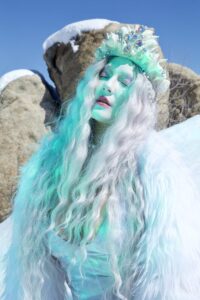
You’re a great believer in live performances. What qualities does your live show bring that perhaps takes the music on record a step further?
I think music live will always take recorded music a step further, you are channelling the energy live when you perform – it can’t help but be a different experience.
Marina Fini is clearly an important collaborator. What’s the process of working together?
I love Marina so much. She’s just a really good friend, and working with her is a joy cause there is such synergy. She’s a really remarkable person, so singular in her vision. I have huge respect for her as an artist and just love working together.
What sort of technical set-up do you employ for writing and composing music? Is there any particular synths or gear that you favour in particular?
I really love my Juno 60. I don’t have a ton of space for hardware, so I’ve been getting really into soft synths. I love the Arturia OB-XA
Are there any contemporary music artists that stand out for you currently?
Christine and the Queens is a rare talent, I love her music and she’s an incredible performer. I love Boy Harsher, Drab Majesty, SRSQ too.
A key element of your music is this theme of transformation and change. On that basis, where do you think your post-Mercurial music direction lies?
It’s definitely different. I think it’s more straightforward in a way, but the same themes are there I think. I’ve definitely developed my songwriting and production since Mercurial. I’m very excited to release the new material.

Mercurial is out now via the Occult Babes label: https://elisabethelektra.bandcamp.com/album/mercurial
Elisabeth Elektra also has a Patreon account where supporters can enjoy recording diaries, exclusive audio, photo and video content: https://www.patreon.com/elisabethelektra
https://elisabethelektra.com
https://www.facebook.com/elisabethelektramusic
https://twitter.com/elisaelektra


